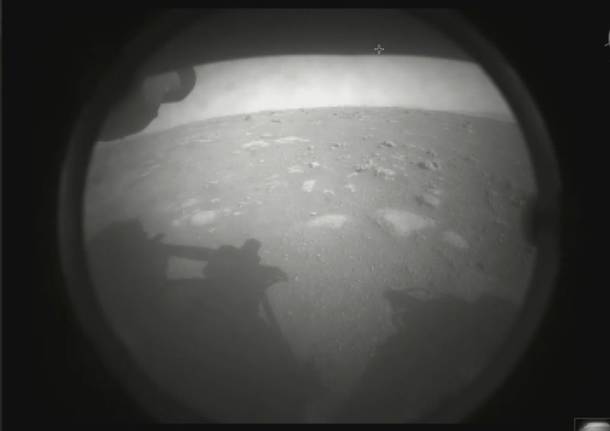Why are we all going to Mars?
The Perseverance rover has landed on Mars, where there is already a Chinese orbiter and one from the United Arab Emirates. Why are we interested in the red planet?

So they made it. The seven minutes of terror from atmospheric entry to landing on Mars ended in a happy ending. An outcome that was anything but predictable, given that in this short space of time the probe had to slow down from a speed of 5.9 kilometres per second.
Perseverance, the name of the rover that NASA sent to Mars, thus began its mission. However, there were Hope “waiting for it” on the planet, that is an orbiter launched by the United Arab Emirates, and Tianwen-1, that is a Chinese mission that also involves the landing of a rover. But why is Mars so crowded these days?
The American mission wants to look for clues about the ancient existence of microbial life forms on the planet. This interest was due to the discover of elements which suggest that on the Martian surface there was liquid water one time (today it is impossible, since the average temperature falls 50 degrees below zero).
Not only. The rover, that is a vehicle about the size of a SUV able to move on the Martian surface, will have to collect samples of rock which a later mission will retrieve to bring them down to Earth. During this mission, also Italy will have a major role.
Instead, Emirates’ mission goal is to study the Martian atmosphere, particularly its lowest layer. Abu Dhabi’s scientists are looking for elements that allow to better understand the Martian climate and its influence on the fact that the planet atmosphere is scattering oxygen and hydrogen into space.
The Chinese space agency planned instead a more complex mission. In fact, for about ten days, a probe orbits around the planet, here to understand the climate and the atmosphere in a better way. In a couple of months there will be a touchdown to lay down a rover that will study the geological composition of Mars soil.
All these activities are obviously preparatory for the landing of humans on Mars. A landing that, according to the patron of SpaceX Elon Musk, could happen by the middle of the decade, even though it is more credible to wait for the end of the next one.
But the study of a planet on which there was once water, we are obviously talking about millions of years ago, has another goal: understand the climate evolution on a planet that has similar characteristics to Earth and deduce clues that could help scientists to understand the climate evolution on our planet.
Translated by Mura Denise, Ovalle Charlotte, Perinelli Giorgia and Villa Michela
Reviewed by Prof. Robert Clarke
La community di VareseNews
Loro ne fanno già parte
Ultimi commenti
Emanuele Zanetti su Motociclista di Ferno ucciso da un orso in Romania
GrandeFratello su Superate le 700 firme per la petizione sul recupero del Grand Hotel Campo dei Fiori di Varese
Felice su Motociclista di Ferno ucciso da un orso in Romania
Stefano64 su Neil Young torna dopo l'enorme successo di Harvest: ma non è il disco che tutti si aspettano
Alessandro Zanzi su Superate le 700 firme per la petizione sul recupero del Grand Hotel Campo dei Fiori di Varese
Felice su La bibliocabina, la panchina e il cane che fa pipì. A Fagnano Olona scoppia la polemica
















Accedi o registrati per commentare questo articolo.
L'email è richiesta ma non verrà mostrata ai visitatori. Il contenuto di questo commento esprime il pensiero dell'autore e non rappresenta la linea editoriale di VareseNews.it, che rimane autonoma e indipendente. I messaggi inclusi nei commenti non sono testi giornalistici, ma post inviati dai singoli lettori che possono essere automaticamente pubblicati senza filtro preventivo. I commenti che includano uno o più link a siti esterni verranno rimossi in automatico dal sistema.